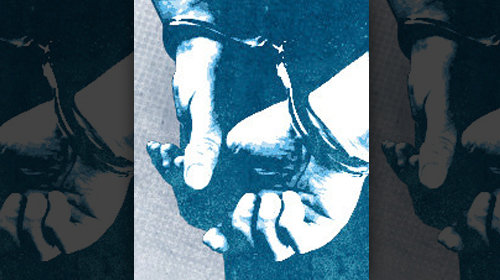
Today, the U.S. has the highest incarceration rate of any country in the world. With over 2.3 million men and women living behind bars, our imprisonment rate is the highest it’s ever been in U.S. history. And yet, our criminal justice system has failed on every count: public safety, fairness and cost-effectiveness. Across the country, the criminal justice reform conversation is heating up. Each week, we feature our some of the most exciting and relevant news in overincarceration discourse that we’ve spotted from the previous week. Check back weekly for our top picks.
Two conservative states consider reducing sentences:
Georgia’s governor Nathan Deal has pledged his support for HB 349, which would allow judges to issue sentences lower than the mandatory minimum for some defendants charged with drug trafficking and other serious felonies. The bill is limited by a provision excluding persons with prior felony convictions, which could include actions as minor as drug possession or a conviction that occurred many years prior. You can find full text of the bill here.
In Texas, state lawmakers have proposed bills that would reclassify some minor crimes, such as low-level marijuana possession and prostitution, as Class C misdemeanors, which do not carry a jail or prison sentence. Last summer, the Texas Public Policy Foundation noted that reclassifying minor crimes would improve the quality of indigent defense by reducing public defenders’ caseloads.
Meanwhile, in New York, Mayor Bloomberg voiced his support for a similar measure: “Commissioner Kelly and I support Governor Cuomo’s proposal to make possession of small amounts of marijuana a violation, rather than a misdemeanor and we’ll work to help him pass it this year.” In the meantime, he announced that people arrested for possessing small quantities of marijuana will no longer be held overnight in jail, but will instead receive a desk appearance ticket for their court date.
And another state comes to grip with its overcrowding problem:
Nebraska’s prisons are at 145 percent of capacity; though they were built to house up to 3,175 prisoners, they’re currently housing more than 4,600. In order to improve safety at the facilities and avoid a lawsuit, state lawmakers are considering ways to solve the problem. The expensive choice is to build a new prison. But some state senators see another solution: "We have too many low-grade offenders in prison right now that are not a threat to themselves or others that should be in community-based services back in their communities," said Sen. Brad Ashford. "I need to know why we can't expedite that process."
Learn more about criminal law reform and other civil liberty issues: Sign up for breaking news alerts, follow us on Twitter, and like us on Facebook.

